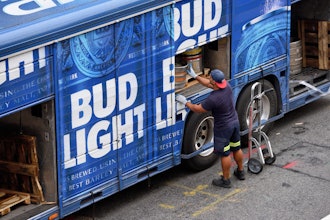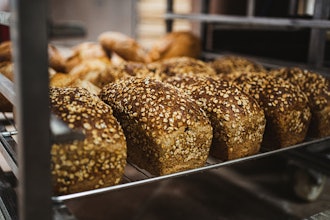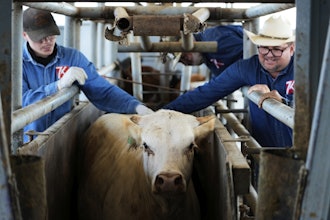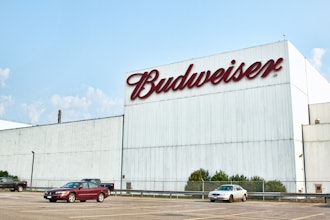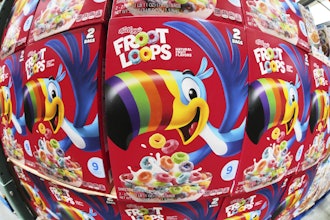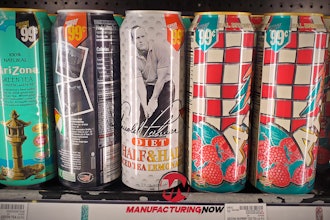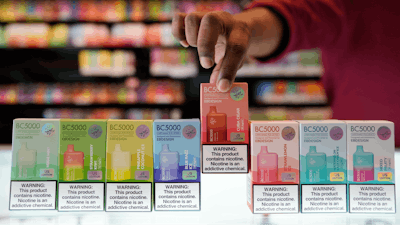
WASHINGTON (AP) — The number of different electronic cigarette devices sold in the U.S. has nearly tripled to over 9,000 since 2020, driven almost entirely by a wave of unauthorized disposable vapes from China, according to tightly controlled sales data obtained by The Associated Press.
The numbers demonstrate the Food and Drug Administration's inability to control the tumultuous vaping market more than three years after declaring a crackdown on kid-friendly flavors.
Most disposables e-cigarettes, which are thrown away when they're used up, come in sweet, fruity flavors like pink lemonade, gummy bear and watermelon that have made them the favorite tobacco product among teenagers. All of them are technically illegal because they haven't been authorized by the FDA.
Once a niche market, cheaper disposables made up 40% of the roughly $7 billion retail market for e-cigarettes last year, according to data from analytics firm IRI obtained by the AP. The company's proprietary data collects barcode scanner sales from convenience stores, gas stations and other retailers.
More than 5,800 unique disposable products are now being sold in numerous flavors and formulations, according to IRI's data, up 1,500% from 365 in early 2020. That's when the FDA effectively banned all flavors except menthol and tobacco from cartridge-based e-cigarettes like Juul, the rechargeable device blamed for sparking a nationwide surge in underage vaping.
But the FDA's policy — formulated under President Donald Trump — excluded disposables, prompting many teens to switch from Juul to the newer flavored products.
 Elf Bar and Esco Bar disposable vaping devices are displayed, Monday, June 26, 2023, in Washington.AP Photo/Andrew Harnik
Elf Bar and Esco Bar disposable vaping devices are displayed, Monday, June 26, 2023, in Washington.AP Photo/Andrew Harnik
"The FDA moves at a ponderous pace and the industry knows that and exploits it," said Dr. Robert Jackler of Stanford University, who has studied the rise of disposables. "Time and again, the vaping industry has innovated around efforts to remove its youth-appealing products from the market."
Adding to the challenge, FDA has little visibility into a sprawling industry centered in China's Shenzhen manufacturing hub. Agency records show that FDA inspectors have only conducted a tiny handful of inspections in China, despite the fact that it produces nearly all e-cigarettes used in the U.S. today.
"FDA theoretically has the authority to inspect foreign manufacturing facilities," said Patricia Kovacevic, an attorney specializing in tobacco regulation. "But practically speaking, the inspection program that the FDA has in place only happens in the U.S."
Most disposables mirror a few major brands, such as Elf Bar or Puff Bar, but hundreds of new varieties appear each month. Companies copy each other's designs, blurring the line between the real and counterfeit. Entrepreneurs can launch a new product by simply sending their logo and flavor requests to Chinese manufacturers, who promise to deliver tens of thousands of devices within weeks.
Under pressure from politicians, parents and major vaping companies, the FDA recently sent warning letters to more than 200 stores selling popular disposables, including Elf Bar, Esco Bar and Breeze. The agency also issued orders blocking imports of those three brands. But IRI data shows those companies accounted for just 14% of disposable sales last year, leaving dozens of other brands untouched, including Air Bar, Mr. Fog, Fume and Kangvape.
FDA's tobacco director, Brian King, said the agency is "unwavering" in its commitment against illegal e-cigarettes.
"I don't think there's any panacea here," King said. "We follow a comprehensive approach and that involves addressing all entities across the supply chain, from manufacturers to importers to distributors to retailers."
IRI restricts access to its data, which it sells to companies, investment firms and researchers. A person not authorized to share the information gave access to the AP on condition of anonymity.
IRI declined to comment on or confirm the data, saying the company doesn't offer such details to news organizations.
To be sure, the FDA has made progress in a mammoth task: processing nearly 26 million product applications submitted by manufacturers hoping to enter or stay on the market. And King said the agency hopes to get back to "true premarket review" once it finishes plowing through that mountain of applications.
Meanwhile, parents, health groups and major vaping companies essentially agree: The FDA must clear the market of flavored disposables.
But lobbying by tobacco giant Reynolds American, maker of Vuse e-cigarettes, has made some advocates wary about pushing the issue. The company petitioned the FDA earlier this year to restrict flavors in all disposable vaping products.
FDA's King says the agency already has ample authority to regulate disposables.
"There's no loophole to close," King said, pointing to FDA's recent actions against disposable makers.
But King's predecessor at the FDA says the current situation could have been avoided but for a decision by Trump's White House to exclude disposables from the 2020 flavor ban.
"It was preventable," said Mitch Zeller, who retired from the FDA last year. "But I was told there was no appeal."
In September 2019, Trump announced at a news conference a plan to ban non-tobacco flavors from all e-cigarettes — both reloadable devices and disposables. But his political advisers worried that could alienate voters.
Zeller said he was subsequently informed in December 2019 that the flavor restrictions wouldn't apply to disposables.
"I told them: 'It doesn't take a crystal ball to predict that kids will migrate to the disposable products that are unaffected by this, and you ultimately won't solve the problem,'" Zeller said.













